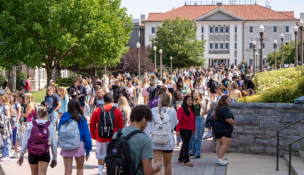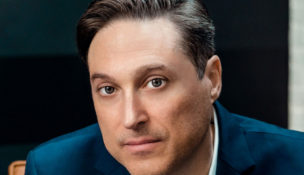Virginia’s chance to legalize marijuana right
Learn lessons from other states' experiences

Chelsea Higgs Wise is co-founder and executive director of Virginia-based nonprofit Marijuana Justice. Photo by Keshia Eugene

Chelsea Higgs Wise is co-founder and executive director of Virginia-based nonprofit Marijuana Justice. Photo by Keshia Eugene
Virginia’s chance to legalize marijuana right
Learn lessons from other states' experiences
SUMMARY:
- Executive director of Virginia-based nonprofit Marijuana Justice discusses goals in regulated adult-use cannabis market in Virginia
- State lawmakers are set to take up matter in upcoming Virginia General Assembly session after legalizing medical marijuana
- Learn from other states’ experiences, keep taxes below 15% and invest locally, writes Chelsea Higgs Wise
As Virginia lawmakers craft the licensing framework for a regulated adult-use cannabis market, there are many lessons to be learned from other jurisdictions. Virginia has a unique opportunity to legalize it right — demonstrating that reparative justice and local economic prosperity can go hand-in-hand — while not overlooking the pitfalls of others.
Don’t allow monopolies. Canada’s legalization system allows an individual license holder to both grow the product and run the consumer stores that sell it. Nevada and Florida have similarly allowed vertical integration, as has Virginia with medical marijuana. In all cases, a few large “seed-to-sale” corporations have captured the market, squeezing out both small growers and small local sellers. Washington state, by comparison, prohibited vertical integration and limited the number of sites any single company could operate, leading to a healthy community of independent businesses. New York went even further by capping licenses per entity, and banning predatory management agreements that let large firms use equity licensees as fronts.
Lesson learned: Build a competitive, two-tiered market. By separating producers and retailers, we prevent any one business from controlling the supply chain. Prioritize licenses for small businesses — including legacy and farmers. Absent strong legislation, Virginia’s adult cannabis market is likely to emulate its medical marijuana market, which has been dominated by a handful of out-of-state, multimillion dollar corporations. Virginia’s legislators have the opportunity to ensure our small Virginia businesses are included in all phases and stages of this industry.
Make sure the regulated market can compete with the illicit market. In Michigan, the eagerness for immediate tax revenue led to a process that flooded the market. With so many licenses, prices collapsed and eventually drove many licensees out of business, which also led to a reduction in revenue. Virginia’s medical marijuana monopoly has driven prices so high that many of our most vulnerable medical patients choose to either stick with the illicit market or drive to Maryland.
Lesson learned: Build a smart, strategic rollout. We’re all eager to launch legal access, but it’s critical that we legalize a competitive and sustainable market. Yes, we need to be able to quickly ramp up to at least one licensed store per 25,000 residents. At the same time, we need to be sure we’ve heard from all localities, researched market demand and created a network of resources that support our local entrepreneurs. Focusing on the short-term or immediate revenue gains will not allow Virginia to fully realize the potential of this industry on our economy.
Lesson learned: Keep combined state and local taxes at or below 15%. Excessive taxes will increase prices that simply fuel the illicit market. We must tax cannabis at a rate that keeps the prices competitive.
Keep the focus on our goals. Virginia legislators made clear when they voted to legalize cannabis in 2021 that one key goal was repairing Black, rural, and other communities hurt by unfair drug policies of the past. Investing in repair is not just a moral imperative, it’s sound economic strategy. A 2022 study by Supernova Women / Cannabis Impact Fund found that for every dollar invested in a social equity program, there is a projected $1.20 return in the form of new tax revenue, increased economic activity, and reduced social costs. Washington state regulators, for all their success encouraging small businesses, failed to prioritize their equity goals. Minority-owned businesses in Washington continue to struggle in getting a foothold in the industry that once targeted their community.
Lesson learned: Invest in impacted people, communities and local farmers. New York law, for example, calls for half of the licenses issued to go to people from impacted communities and those with past cannabis convictions. Focusing on harms based on evidence while avoiding litigation will be a delicate balance, but is both absolutely necessary and achievable for Virginia.
The choice is clear: Design a market rooted in fairness, competition and repair that will benefit the commonwealth for generations to come rather than ignoring the lessons learned from other states for big money now. By embedding safeguards against consolidation, investing in the repair of impacted people and communities, and ensuring fair competition, Virginia can legalize cannabis right, with a strong, local industry that creates wealth broadly, boosts revenue and keeps consumers safe.
Chelsea Higgs Wise, MSW, is the co-founder and executive director of Virginia-based nonprofit Marijuana Justice. Wise serves on the national United for Marijuana Decriminalization Coalition steering committee, as well as the Global Justice in Emerging Cannabis Cohort.
i
















